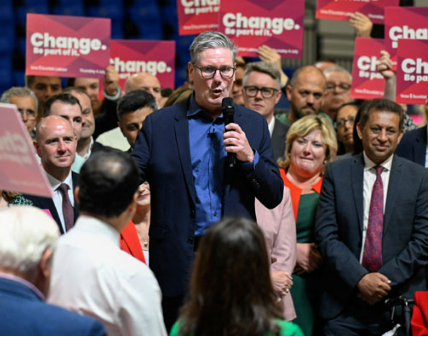Millions of pounds in foreign aid go to projects where locals are wealthier than those in the poorest parts of Britain, report reveals
Millions of pounds of foreign aid cash have been squandered on projects in areas where people are wealthier than those in the poorest parts of Britain, a report has found.
A project to promote a traditional form of all-female opera to younger audiences in Shanghai, China, was among those identified as having been awarded money from the UK’s £15billion foreign aid budget.
The initiative, which aimed to ‘merge historical cultural forms with contemporary artistic expressions’, was handed £200,165 of UK taxpayers’ cash, according to the Institute of Economic Affairs think-tank.
Another project in the Chinese city, which aimed to ‘enhance public engagement with urban heritage through graphic design’, received £202,384.
A third got £202,323 ‘to foster creativity in Chinese communities’. Meanwhile, in the Malaysian capital, Kuala Lumpur, £244,061 was given to help tackle road traffic.

Millions of pounds in foreign aid is being spent on areas where people are wealthier than the poorest parts of Britain

Swansea in Wales has a per capita GDP of £27,525 (file photo)

Among projects financed by the UK’s £15billion foreign aid budget was an initiative to promote all-female opera in Shanghai, where the GDP per capita is £19,520

The skyline of Kuala Lumpur. Foreign aid money has paid for projects in the Malaysian capital, where GDP per capita is £21,199
Money has been spent on projects in affluent foreign areas over the last five years. In Mexico City, taxpayers paid for a temporary cycle lane.
Other initiatives were funded in Campeche, on the Gulf of Mexico, which has a GDP per capita – or economic output per person – of £24,994. GDP per capita in Shanghai is around £19,520, £21,512 in Shenzhen and £21,199 in Kuala Lumpur.
By comparison, it is £17,635 in Ards and North Down in Northern Ireland, the UK’s poorest region.It is £20,572 in Redbridge and Waltham Forest, in east London, £20,669 in Torbay, Devon, and £21,520 in Southend, Essex.
The richest regional recipient of UK foreign aid cash, according to the report, was Ordos in China, where it is £27,500.
There are around 69 regions in the UK with a GDP per capita lower than this.
The study, called Robin Hood in Reverse, argues for an overhaul of the way foreign aid cash is distributed, as current rules fuel waste and effectively mean lower-income UK taxpayers are funding projects abroad in areas where people are wealthier than them.
It identified 13 projects in China, Malaysia and Mexico worth just under £3million (£2,978,417) where money had potentially been wasted. The true amount of waste is likely to be much higher.

Leyton in Redbridge and Waltham Forest, east London, where the GDP per capita is £20,572

The richest regional recipient of UK foreign aid cash, according to the report, was Ordos in China, where GDP is £27,500

Initiatives have also been funded in Campeche, a city on the Gulf of Mexica with a GDP per capita of £24,994

By comparison Torbay, Devon has a GDP per capita of £20,669
One change it recommends is applying international metrics of poverty at a regional as well as national level.
Mark Tovey, who wrote the report, said: ‘Taxing hard-working people in left-behind Britain to fund projects in affluent regions abroad is a policy of Robin Hood in reverse.
‘We urgently need to re-evaluate our aid priorities to ensure that UK taxpayers’ money supports the world’s poorest, focusing on stamping out infectious diseases, ending hunger and genuinely lifting those in desperate need out of poverty.’
The UK has a target to spend 0.5 per cent of Gross National Income on foreign aid every year.



